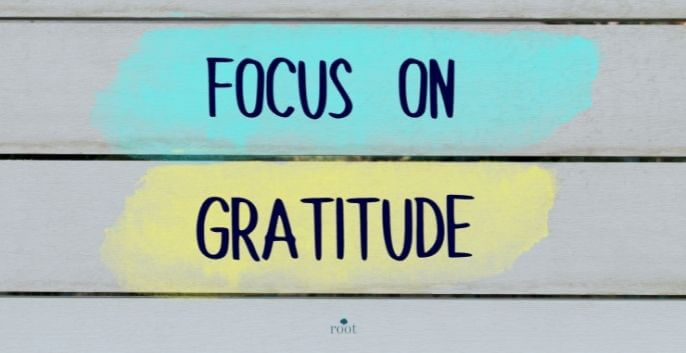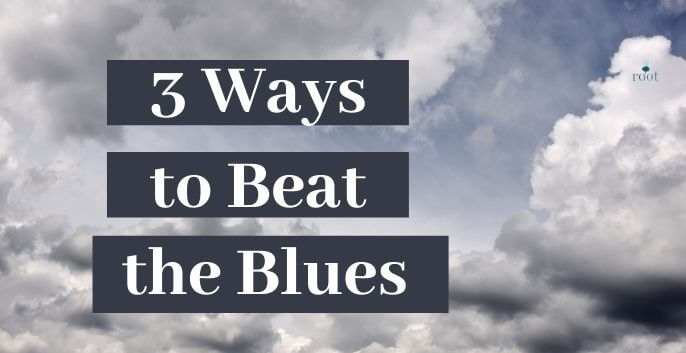When it comes to health, the importance of music should not be overlooked. Learn the seven advantages of listening to music for stress relief and health

Disclaimer: Some of these links are affiliate links, which means when you sign up or purchase from these links we may receive a small commission at no extra cost to you. Root Nutrition & Education is also a participant in the Amazon Services LLC Associates Program, an affiliate advertising program designed to provide a means for sites to earn advertising fees by advertising and linking to Amazon.com. Learn more in our disclosure statement here.
For as long as I remember I have been a bit of a pessimist. Always seeing the glass as half empty I was a constant worrywart and negative Nelly.
As I made improvements in my health and wellbeing my outlook has changed and my glass has been filled. Despite this new outlook, every now and then I can still get a case of the blues.
Sometimes it’s little things. The fact that winter seems so long. Or getting overwhelmed about not having enough time to finish all the daily tasks I need to get done.
Knowing constant stress and negativity can lead to poor health outcomes. I often look for ways to lift my spirits so I can turn that frown upside down.
Aside from gratitude and affirmations, music has always been a mood enhancer that I turn to for daily inspiration.
Just like positive thinking, music can improve overall health. It has the ability to change my emotions with just a few notes.
Music has always been a part of my life. I had the benefit of living with two older sisters who were tuned into music and passed it along to me.
Growing up in the late ’80s and ’90s they listened to everything from the bubble gum pop of New Kids on the Block and Madonna to Grunge, Hip Hop, R&B, and Rap artists like Hole, Nirvana, Snoop Dogg, Dr. Dre, and Biggie Smalls. We even started our own music blog.
Music has the ability to set the stage for your emotional experience. It can cultivate feelings of joy, sadness, and suspense, and even give you the creeps.
Anytime you see on television someone has a heartbreak they go for that sad depressing tunes or some upbeat track to dance out their lovelorn troubles.
One episode in particular that stands out to me was in the 90’s drama “My So-Called Life.” The character Angela Chase was devastated when she found out that her best friend Rayanne Graff slept with her love interest Jordan Catalano. She was in a slump and then one day she turned on some Violent Femmes and danced her way to a better mood.
So if you are feeling down in the dumps read on to learn how those tunes can not only enhance your mood but improve your overall health.
1. Music May Improve Your Immune System
Music has the power to heal your soul as well as your physical being. Music may enhance the immune system. Positive changes have been observed in immune cells showing music may have anti-inflammatory effects.
So next time you feel a cold coming turn on some soothing music.
2. Music May Help with Depression
Those upbeat tracks with jangly piano keys and pumping melodies have been shown to improve depression and decrease anxiety. In a 2017 review of nine studies with 421 participants, 411 of those were part of a meta-analysis looking at the short-term effects of music therapy for depression.
Music therapy provides short-term beneficial effects for those with depression when compared with those who received regular treatment.
3. Music Decreases Anxiety and Stress
Feeling anxious about your upcoming day? Your anxiety could lead to high-stress levels. Don’t let the worries get you in a tizzy. Instead, pop in some soothing tunes that will put your mind at ease and bring your body back to a state of calm.
Research shows that music can decrease stress. Music has been shown to lower the hormone cortisol which is responsible for making us feel stressed out and anxious.
4. Music Improves Your Sleep
Quality sleep is so important for maintaining good health. Not getting enough can lead to problems like high blood pressure, elevated stress, anxiety, and depression. Music has been found to be a safe and effective way to improve the quality of sleep.
A study out of China showed an improvement in the sleep quality of the elderly when after listening to 30 or 45 minutes of music every night for three months. It is also effective for younger people with sleeping disorders.
Research on students 19 to 28 years of age responded positively to classical music at bedtime. They saw an improvement in sleep patterns and a decrease in depression.
Have trouble sleeping? Put on some soft music to clear your head and relax your muscles. You will be getting zzz’s in no time.
5. Music Builds Relationships and Lifelong Bonds
Music can help build and foster a relationship. My love of music and concert-going has forged amazing relationships throughout my life. Some of the best memories I have are going to concerts and music festivals with my friends and family.
Sharing your love for music will strengthen your relationship and give you a fun activity to do with friends and loved ones.
6. Music Keeps Your Workout Going
Ever have that feeling like you just can’t do any more reps or finish that run? Music has been found to be a catalyst for finishing workouts. A workout without music would have no motivation at all.
One study showed those who were given music during a workout were able to complete a longer duration on the treadmill when compared to those who had no music. Use music as a catalyst to keep your workout motivated!
7. Music May Enhance Memory
Can’t remember where you left your keys? Or have a presentation you need to memorize? Try adding some music for another mnemonic device. Music has been found to help release dopamine which can aid in your ability to remember.
Classical music has also been tied with helping to improve the retention of material when studying.
A study of 60 adults showed they had the easiest time learning Hungarian when they incorporated rhythmic speaking or singing
More Tips for Health
By reading this information-only website, you take full responsibility for what you choose to do with this website’s information or outcomes. The information on this website has not been evaluated by the Food & Drug Administration or any other medical body. It is shared for educational purposes only and is not intended to diagnose, treat, prevent, or cure any disease. Consult your doctor or healthcare provider before making changes to your diet, exercise regimen, or lifestyle. By accessing or using this website, you agree to abide by the Terms of Service, Full Disclaimer, and Privacy Policy. Content may not be reproduced in any form.


